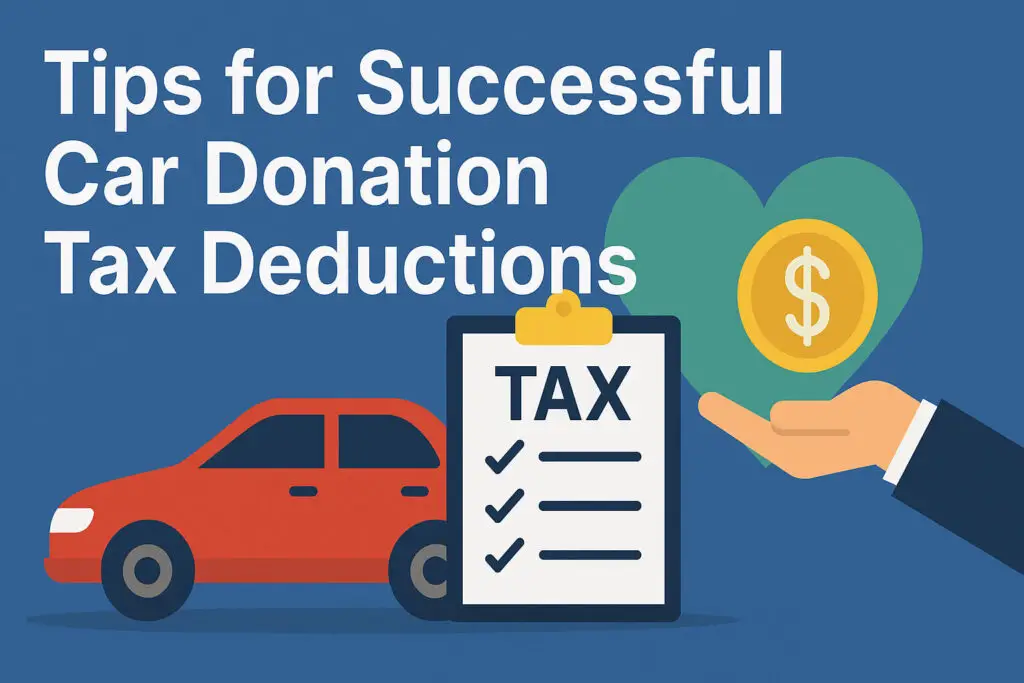Welcome to our comprehensive guide on auto credit interest rates. we believe in providing you with accurate and insightful information to help you make informed decisions about your auto financing options. In this article, we will delve into the hidden truth behind auto credit interest rates, shedding light on important factors that can impact your loan terms and overall financial well-being.
Auto credit interest rates play a crucial role in the process of financing a vehicle. It is essential to have a clear understanding of these rates to make informed decisions when obtaining an auto loan. In this section, we will explore the key aspects of auto credit interest rates and how they impact your overall financial situation.
What Are Auto Credit Interest Rates?
Auto credit interest rates refer to the percentage charged by lenders on the amount borrowed for purchasing a vehicle. These rates play a crucial role in determining the total cost of your loan. While some lenders offer fixed interest rates, others provide variable rates that may fluctuate over time.
Bad Credit? No Problem! How to Get Auto Credit
Factors Affecting Auto Credit Interest Rates
Several factors influence the auto credit interest rates offered by lenders. Some of the key factors include:
1. Credit Score
Your credit score plays a crucial role in determining the interest rate you’ll be offered. Lenders perceive individuals with higher credit scores as less risky borrowers, resulting in lower interest rates. On the other hand, borrowers with lower credit scores may face higher interest rates due to the perceived higher risk.
2. Loan Term
The length of the loan term can impact the interest rate. Shorter loan terms usually come with lower interest rates, while longer terms may have higher rates. It’s essential to consider the trade-off between a lower monthly payment and the overall interest paid over the life of the loan.
3. Down Payment
The amount you put down as a down payment can influence the interest rate. A larger down payment can lower the interest rate as it reduces the lender’s risk.
4. Type of Vehicle
The type of vehicle you’re financing can also affect the interest rate. Lenders may offer different rates for new and used vehicles. Additionally, luxury or exotic cars may have higher interest rates compared to standard models.
5. Market Conditions
Market conditions, such as the state of the economy and interest rate trends, can impact auto credit interest rates. During economic downturns, interest rates may increase, while favorable market conditions can result in lower rates.
6. Debt-to-Income Ratio:
Lenders evaluate your debt-to-income ratio, which compares your monthly debt obligations to your income. A lower ratio indicates better financial stability and may result in more favorable interest rates.
7. Income and Employment History:
Lenders often assess your income stability and employment history. A stable income source and consistent employment record may positively impact interest rates, as they indicate a lower risk of default.
The Impact of Credit Score on Auto Credit Interest Rates
Your credit score plays a significant role in determining the interest rate you receive when applying for auto credit. Lenders consider your credit score as an indicator of your creditworthiness and use it to assess the level of risk associated with lending you money. Understanding how your credit score affects auto credit interest rates is crucial for obtaining favorable loan terms. Let’s explore the impact of credit score on auto credit interest rates in more detail.
Credit Score Categories
Credit scores typically fall into different categories, such as excellent, good, fair, and poor. The specific ranges may vary depending on the credit scoring model used, but generally, the categories are as follows:
- Excellent: Credit scores above 800 are considered excellent and reflect a history of responsible financial management. Individuals in this category are likely to qualify for the most favorable interest rates offered by lenders.
- Good: Credit scores ranging from 670 to 799 fall into the good category. This indicates a solid credit history with a low risk of default. Borrowers with good credit scores can still qualify for competitive interest rates.
- Fair: Scores in the range of 580 to 669 are classified as fair. This suggests some credit issues or a limited credit history. Borrowers in this category may still be eligible for loans but may face slightly higher interest rates.
- Poor: Credit scores below 580 are considered poor. This indicates a higher risk of default and may result from significant credit issues or a history of late payments and defaults. Borrowers with poor credit scores may find it challenging to secure loans and may face significantly higher interest rates if approved.
Impact of Credit Score on Interest Rates
Your credit score directly influences the interest rate you are offered on auto credit. Lenders use credit score ranges as a basis for determining the level of risk associated with lending to you. Here’s how different credit scores can impact auto credit interest rates:
- Excellent Credit: Individuals with excellent credit scores can qualify for the most favorable interest rates. Lenders view them as low-risk borrowers, resulting in lower interest rates and potentially substantial savings over the life of the loan.
- Good Credit: Borrowers with good credit scores are also considered low-risk by lenders. They can typically secure competitive interest rates, although slightly higher than those offered to individuals with excellent credit.
- Fair Credit: Those with fair credit scores may still be eligible for auto credit, but they are likely to face higher interest rates. Lenders view them as higher-risk borrowers, and the interest rates reflect the increased likelihood of default.
- Poor Credit: Borrowers with poor credit scores face the most significant challenge in obtaining favorable auto credit interest rates. Lenders perceive them as high-risk borrowers, resulting in significantly higher interest rates or even loan denials.
It’s important to note that the impact of your credit score on interest rates may vary between lenders. Each lender has its own criteria and risk assessment models. Therefore, it’s crucial to shop around, compare offers, and consider working on improving your credit score before applying for auto credit.
Improving Your Credit Score
If your credit score falls in the fair or poor range, there are steps you can take to improve it over time:
- Pay your bills on time: Consistently making timely payments can have a positive impact on your credit score.
- Reduce your debt: Pay down outstanding balances and keep credit card utilization low to improve your credit utilization ratio, which is the amount of available credit you’re using.
- Monitor your credit report: Regularly review your credit report for errors or discrepancies. Dispute any inaccuracies and work towards resolving any outstanding issues.
- Establish a positive credit history: Open new credit accounts responsibly and make timely payments to demonstrate your ability to manage credit.
- Maintain a low credit utilization ratio: Keep your credit card balances low relative to your credit limits. Aim to use no more than 30% of your available credit.
- Avoid applying for multiple credit accounts: Limit the number of credit applications you submit, as multiple inquiries within a short period can negatively impact your credit score.
- Lengthen your credit history: Maintain older credit accounts, as a longer credit history can have a positive impact on your credit score.
- Seek professional assistance if needed: If you’re facing significant credit challenges, consider working with a reputable credit counseling agency or a financial advisor who specializes in credit improvement.
Tips for Securing Lower Auto Credit Interest Rates
- Improve Your Credit Score: Prioritize building a strong credit history by paying bills on time, reducing outstanding debts, and correcting any errors on your credit report. A higher credit score can help you qualify for lower interest rates.
- Save for a Down Payment: Consider saving up for a significant down payment before applying for an auto loan. A larger down payment can demonstrate your financial stability and decrease the loan amount, potentially leading to lower interest rates.
- Compare Multiple Lenders: Don’t settle for the first offer you receive. Take the time to research and compare interest rates and terms from different lenders. This allows you to find the most competitive rates available.
- Consider Loan Pre-Approval: Getting pre-approved for an auto loan before visiting the dealership puts you in a stronger position to negotiate favorable interest rates. It also helps you set a budget and streamline the buying process.
- Refinance Your Auto Loan: If you have an existing auto loan with a high-interest rate, consider refinancing it. Refinancing can help you secure a lower interest rate and potentially save you money in the long run.
- Negotiating Auto Credit Interest RatesNegotiating auto credit interest rates is possible and can potentially save you a significant amount of money over the loan term. Here are a few tips to help you negotiate:
- Research rates from different lenders and use them as leverage during negotiations.
- Improve your credit score before applying for an auto loan to increase your chances of qualifying for better rates.
- Consider getting pre-approved for an auto loan to strengthen your negotiating position.
- Be prepared to walk away if the negotiations aren’t going in your favor. Sometimes, lenders may be willing to adjust the interest rate to secure your business.
- Remember, negotiating interest rates requires persistence and preparation. It’s crucial to thoroughly understand your financial situation, research current market rates, and be aware of your credit score before entering into negotiations
- Be confident and assertive during the negotiation process. Present your case, highlighting your creditworthiness and any additional factors that may work in your favor.
The Pros and Cons of Auto Credit Interest Rates
Like any financial decision, there are pros and cons associated with auto credit interest rates. Let’s explore them:
Pros:
- Allows you to purchase a vehicle when you don’t have sufficient cash on hand.
- Enables you to build or improve your credit score if you make timely payments.
- Provides the convenience of spreading out the cost of a vehicle over an extended period.
- Depending on market conditions, you may secure a low-interest rate, resulting in overall savings.
Cons:
- The total cost of the vehicle increases due to the added interest charges.
- A high-interest rate can significantly impact your monthly budget and overall financial stability.
- If you default on the loan or make late payments, it can negatively affect your credit score.
It’s important to carefully consider the pros and cons before committing to an auto credit interest rate. Assess your financial situation, evaluate the terms and conditions, and make an informed decision that aligns with your long-term goals.
Avoiding Predatory Lending Practices
While seeking auto credit, it’s crucial to be aware of predatory lending practices that can put you at a financial disadvantage. Here are some red flags to watch out for:
- Excessive Fees: Be cautious of lenders charging excessive fees or including unnecessary add-ons to your loan agreement. Read the terms and conditions carefully, and question any charges that seem unreasonable.
- High-Pressure Tactics: Beware of lenders who use aggressive or high-pressure tactics to push you into accepting unfavorable terms. Take your time, compare options, and make a decision that’s in your best interest.
- Unaffordable Payments: Ensure that the monthly payments are within your budget and won’t strain your finances. Avoid loans with unrealistic repayment terms or balloon payments that can be difficult to manage.
- Unlicensed Lenders: Verify that the lender is licensed and authorized to provide auto credit. Unlicensed lenders may engage in fraudulent practices or charge exorbitant interest rates.
5. Hidden Terms and Conditions: Carefully review the loan agreement for any hidden clauses or terms that may result in unexpected costs or penalties. Seek clarification on anything that is unclear or ambiguous.
To protect yourself from predatory lending practices, it’s essential to conduct thorough research, compare lenders, and read all documents carefully before signing any agreements. If something seems suspicious or too good to be true, trust your instincts and consider seeking advice from a trusted financial advisor.
Conclusion
Auto credit interest rates play a significant role in the overall cost of financing a vehicle. Understanding the factors that influence these rates and knowing how to negotiate for better terms can save you money in the long run. Remember to focus on improving your credit score, comparing lenders, and being mindful of predatory lending practices.
By making informed decisions and taking proactive steps, you can secure favorable auto credit interest rates that align with your financial goals and ensure a smoother and more affordable vehicle financing experience.
FAQs
1. Can I negotiate the interest rate with my current lender?
Yes, it’s possible to negotiate the interest rate with your current lender. Research rates from other lenders and use them as leverage during the negotiation process.
2. How much difference can a good credit score make in the interest rate I receive?
A good credit score can make a significant difference in the interest rate you receive. Individuals with higher credit scores often qualify for lower rates, potentially saving them thousands of dollars over the life of the loan.
3. Should I choose a longer loan term to get a lower monthly payment?
While a longer loan term can result in a lower monthly payment, it’s important to consider the overall cost of the loan. Longer terms generally come with higher interest rates, meaning you may end up paying more in interest over time.
4. Is refinancing my auto loan a good option to lower the interest rate?
Refinancing your auto loan can be a viable option to lower the interest rate if market conditions have improved or if your credit score has significantly improved since obtaining the original loan. It’s advisable to evaluate the potential savings and consider any associated fees before refinancing.
5. What steps can I take to avoid predatory lending practices?
To avoid predatory lending practices, research lenders, read loan agreements thoroughly, and be cautious of high-pressure tactics, excessive fees, and unlicensed lenders. If in doubt, seek guidance from a trusted financial advisor.









